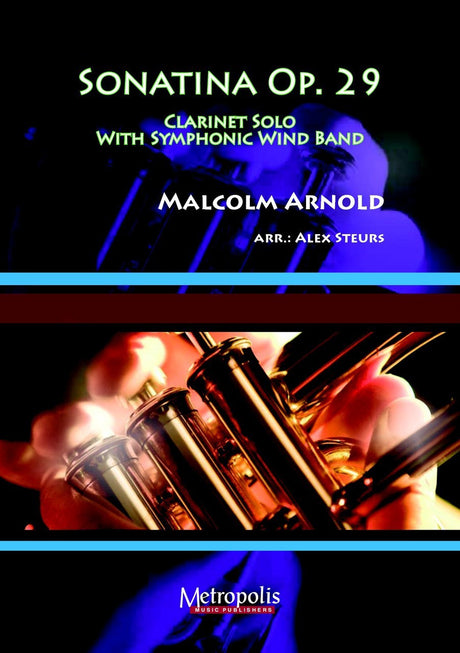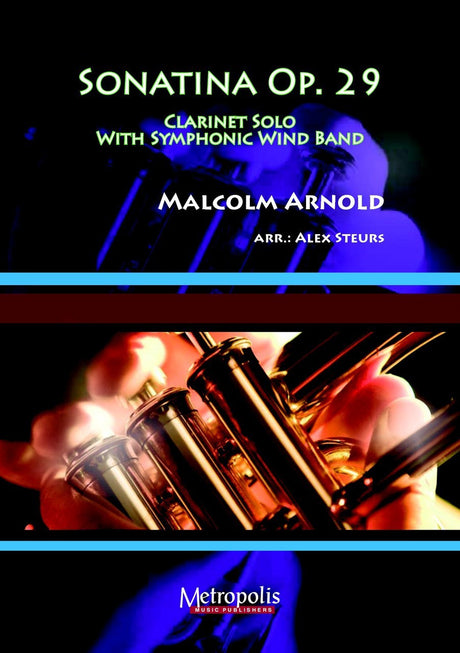Arnold, Malcolm

Sir Malcolm Arnold was one of the leading British composers of the second half of the 20th century. Malcolm Henry Arnold was born on 21st October 1921 in Northampton. The Great-Grandson of William Hawes, the head of all music for the Chapels Royal and St Paul’s.
In 1937 Sir Malcolm was awarded a scholarship at the Royal College of Music in London where he studied the trumpet with Ernest Hall and composition with Gordon Jacob.
After a successful career as the London Philharmonic Orchestra’s first trumpet, he became a full-time composer in 1948. Amongst his early successes were the overture “Beckus the Dandipratt”, the two sets of “English Dances”, the overture “Tam O’Shanter”, the ballet “Homage to the Queen” and his first two symphonies.
By the late 50s, he achieved fame in other circles. He became one of the main contributors to the Hoffnung concerts (“Grand, Grand Overture”, “Grand Concerto Gastronomique”, and “Carnival of Animals” ). He also made himself a name as a composer of film scores, including the hugely successful “Bridge on the River Kwai” directed by David Lean, for which Sir Malcolm won an Oscar.
He continued his concert hall successes with works such as the “Four Scottish Dances”, the Double Violin Concerto, the Guitar Concerto, several ballets, the “Four Cornish Dances”, the famous “Peterloo Overture” and four more symphonies. He became one of the most sought-after composers alongside Benjamin Britten and William Walton.
At the end of the 1960s he had distanced himself somewhat from the British music scene by moving to Ireland. Works produced during that period included Symphonies 7 and 8, the Philharmonic Concerto, the “John Field Fantasy” for piano and orchestra, the Second String Quartet and his jazzy Clarinet Concerto No.2 (dedicated to and first performed by Benny Goodman).
Arnold suffered from severe health problems in the late 70s and early 80s and stopped composing for some years. However, he resumed his career in the mid-80s and created works such as the “Four Irish Dances”, a Cello Concerto and Symphony No 9. He retired from composing in 1991.
During his life, Sir Malcolm was awarded many fellowships and honours and was knighted for services to music in 1993. Sir Malcolm died on 23rd September 2006.











